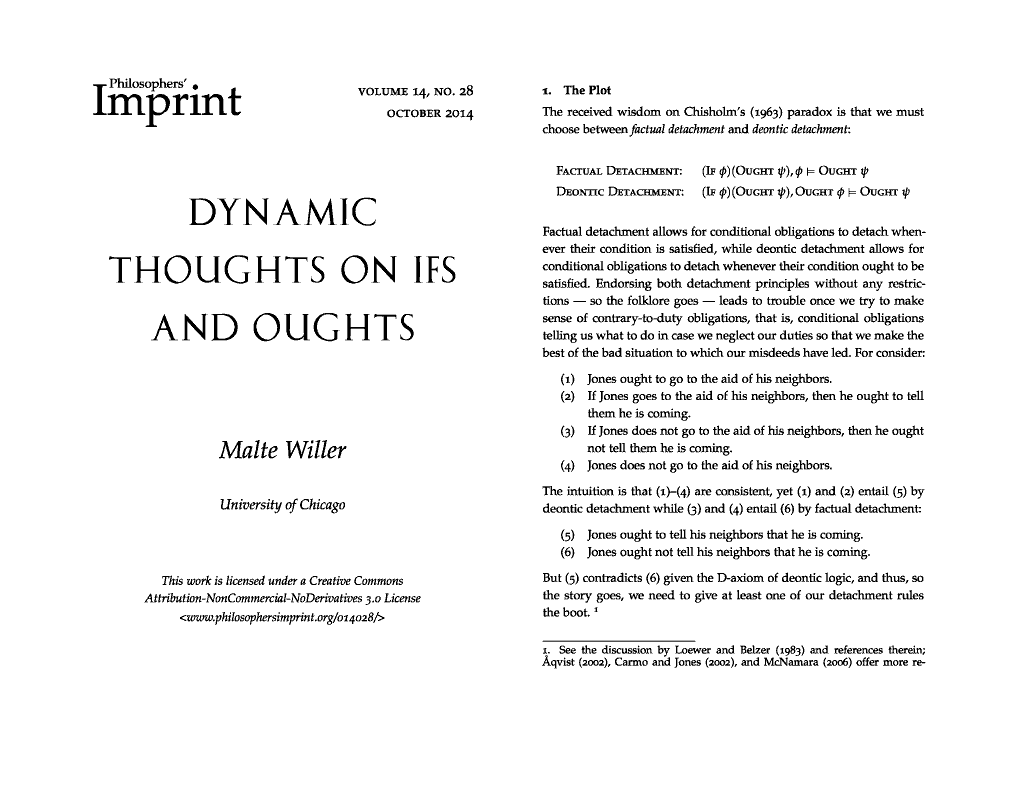Dynamic Thoughts on Ifs and Oughts
Skip other details (including permanent urls, DOI, citation information): This work is licensed under a Creative Commons Attribution-NonCommercial-NoDerivatives 3.0 License. Please contact [email protected] to use this work in a way not covered by the license.
For more information, read Michigan Publishing's access and usage policy.
Abstract
A dynamic semantics for iffy oughts offers an attractive alternative to the folklore that Chisholm's paradox enforces an unhappy choice between the intuitive inference rules of factual and deontic detachment. The first part of the story told here shows how a dynamic theory about ifs and oughts gives rise to a nonmonotonic perspective on deontic discourse and reasoning that elegantly removes the air of paradox from Chisholm's puzzle without sacrificing any of the two detachment principles. The second part of the story showcases two bonus applications of the framework suggested here: it offers a response to Forrester's gentle murder paradox and avoids Kolodny and MacFarlane's miners paradox about deontic reasoning under epistemic uncertainty. A comparison between the dynamic semantic proposal made in this paper and a more conservative approach combining a static semantics with a dynamic pragmatics is provided.



